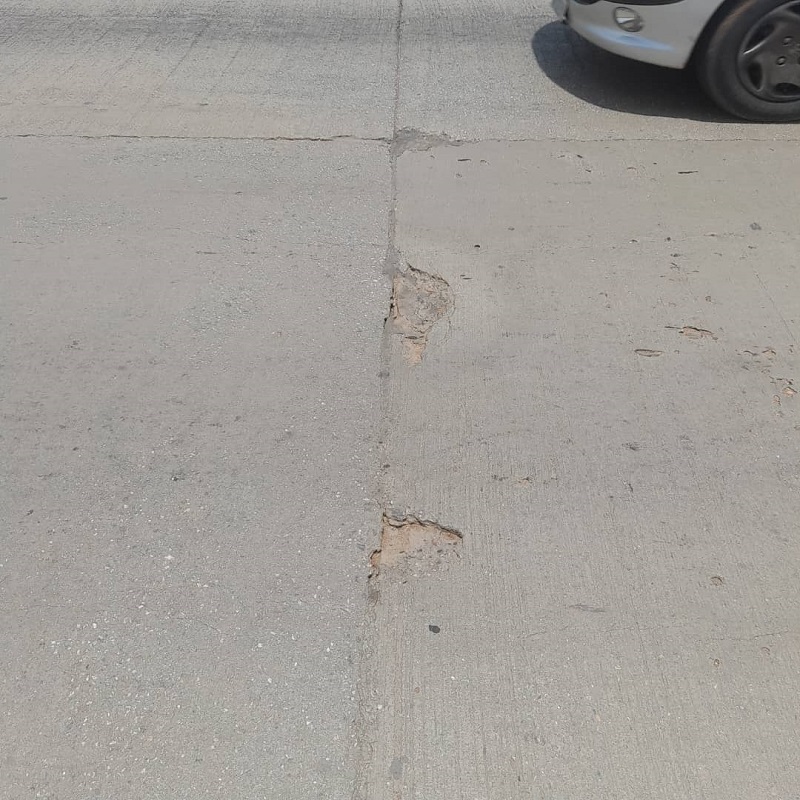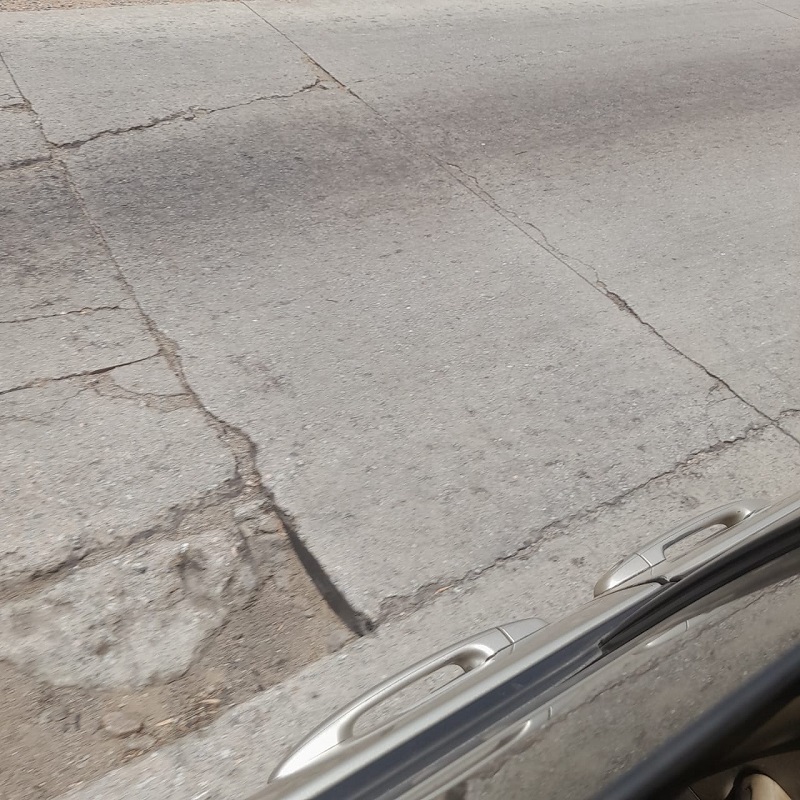By Frank Kintum
The Obajana-Kabba road in Kogi state, said to be the longest concrete road in Nigeria, has already started developing failed portions, just four years after it was constructed.
A field trip by Transport Day along the route on Sunday, April 13th, 2024, shows clearly that the 42.5km road which was constructed by Dangote Industries on a tax concession and Corporate Social Responsibility (CSR) basis, has developed over 100 failed portions.
The road, commissioned in 2021, was said to have cost the Dangote Group a whopping N11.5billion but the job was awarded to the Group on tax concession basis at N5.24billion. The difference of N6.2billion is part of the Corporate Social Responsibility (CSR) of the Dangote Group.
At the signing ceremony, in 2016, then Minister of Power, Works and Housing, Babatunde Fashola SAN, said: “So, we presented a proposal by one of the subsidiaries of Dangote group, a construction company, for the construction of a section of Lokoja-Obajana-Kabba-Ilorin road.
“Specifically, the section between Obajana-Kabba Road, using cement as demonstrative of how perhaps we should continue to build, going forward, in order to reduce maintenance on the road and the company proposing to fund the construction of that section of the road in exchange for some tax remissions”.
Reports indicate that at the commissioning event four years ago, the site engineer, Samuel Obosi, assured that the dual carriageway would be durable and less susceptible to potholes and repairs like asphalt roads, thereby reducing the incidence of road accidents in the country.

An online resource indicate that “Concrete roads can last a significant amount of time, generally between 20 to 40 years, or even longer with proper maintenance and care. Their durability and load-bearing capacity make them a strong choice for roads, particularly those with heavy traffic. Factors like the quality of the concrete mix, construction techniques, and environmental conditions play a role in how long a concrete road will last”.
It is not clear why the Obajana-Kabba road commissioned only four years ago has started developing cracks.
When Transport Day contacted, the spokesman for Dangote group, Tony Chiejina, he declined to comment on the issue.
Nonetheless, in a related development, a recent Guardian newspaper report indicates that the federal government may scale down concrete road projects over 73% spike in cost.
According to the report, “The federal government may have to scale down its plan to adopt concrete technology in road infrastructure nationwide due to the high price of building materials and the prevailing macro and microeconomic climate.
“Although a policy guide on concrete road construction has existed, it has not been massively deployed for roads owing to costs and the availability of funds. Road construction nationwide has been mainly asphalt-based since independence, but the advent of concrete technology offered a new methodology for road development and durability.
“Concrete road technology is usually the most expensive option initially. It can cost about two to three times as much as asphalt and about six times the cost of gravel, estimated at $5 to $10 per square foot.
“Findings show that the initial cost of the one-kilometre length of the concrete road was as high as N59.18 million per kilometre, while that of the asphalt road was pegged at N49.76 million per kilometre. Asphalt pavement is less by about N9.41 million per kilometer. However, that quotation on concrete has increased by 73 per cent due to inflation and the rising cost of construction materials”.













